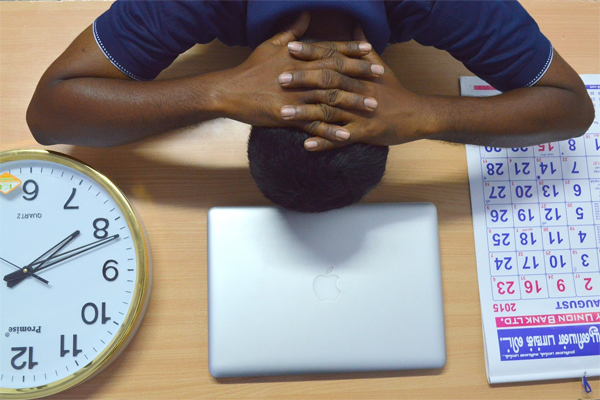Today, on 18th January 2021, we observe ‘Blue Monday’ – considered to be the UK’s most depressing day of the year.
With numerous reports over the past year of how the pandemic has impacted mental health, it has never been more important for organisations to prioritise the mental and physical wellbeing of their employees.
In fact, according to a survey from The Workforce Institute at UKG, nearly half (47%) of UK workers say that their organisation could have better supported employee needs during the pandemic. “While over two thirds (67%) did say that they trust their employer to care about their mental health and wellness, organisations can be doing a lot more to ensure welfare needs are being met,” states Dr Chris Mullen, Executive Director of The Workforce Institute at UKG.

‘ALWAYS ON’ WORLD OF WORK
In the new ‘always on’ world of work, many employees are feeling pressured to prove their worth by going above and beyond their usual working hours due to job security fears, particularly in the current pandemic climate. “Managers must therefore be intentional with their employees now more than ever, taking full advantage of virtual platforms to get a sense of how staff are feeling, and to alleviate any pressures they may be feeling,” notes Mullen.
However, 17% of UK employees felt that their manager underestimated how much they were working, according to the Trust in the Modern Workplace report, carried out by The Workforce Institute at UKG and Workplace Intelligence. This is much higher than the global average (10%) and European counterparts, such as France (7%), Germany (8%) and the Netherlands (8%).

ALLEVIATING WORKPLACE STRESS
To help employees cope with the disruption and alleviate the negative mental health symptoms employees may be experiencing, “organisations should be implementing stress management and self-care practices for their entire workforce”, advises Mullen. “Organisations need to be focusing on reducing burnout, introducing self-care practices and building trust.”
Interestingly, the study also reveals that over half (51%) of UK workers say that their organisational trust impacts their mental health. Trust directly impacts staff mental health (55%), employee sense of belonging (64%) and career choice (58%).

GAINING STAFF TRUST
Trust is key for attracting and retaining top talent and performance. Yet fewer than half employees (46%), in Europe feel they are trusted at work according to recent research, as reported. In short, leaders have their work cut out for them to gain this trust, because not only is it vital to retaining top talent, but also productivity, reveals the UKG study.
The Trust in the Modern Workplace report by The Workforce Institute at UKG and Workplace Intelligence is based on a global survey of nearly 4,000 employees and business leaders in 11 countries, and examines the current state of trust – especially between employees and leaders – and the opportunities that organisations can create by making trust a foundational element of their employee experience.







































